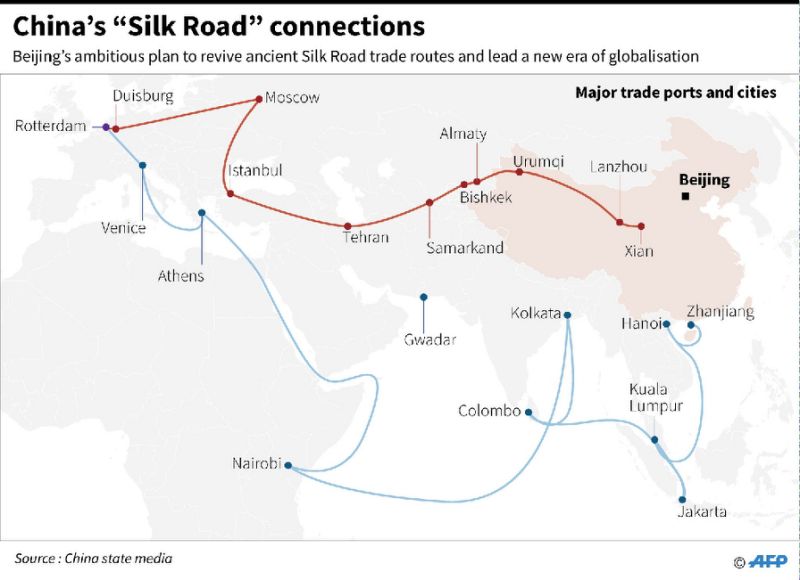It is undeniable that America’s global dominance in on the wane. As recently as 2005, U.S. GDP was three times larger than its closest national competitor, Japan, which was, in any case, a major American ally. Today, with the explosive growth of China, U.S. GDP is only 50 percent greater than its Asian rival. At current growth rates, China’s GDP will surpass that of the United States in just 11 years.
Of course, the United States is not confronting a sudden eclipse in power like that faced by Britain after World War II. What makes America unusual in the international system is not that it is big (China and India are bigger) and not that it is rich (several countries are richer), but rather that it is the only country in the world that is both rich and big. This will remain so for the foreseeable future.
What is to be Done?
Despite all of this, one fact remains: China’s massive population virtually ensures that, short of a full collapse, it will pass the United States economically in the not-too-distant future.
The United States has gotten used to being the world’s largest economy. After all, it has held the title for more than 140 years. And now, with the rise of China, America’s dominant position is in question for the first time since World War II. What to do?
As I see it, there are three possibilities.
First, the United States could continue as if its global dominance remains unchallenged. This was the approach of the George W. Bush administration.
Second, it could retreat into a more isolationist foreign policy, fed up with the burdens of leadership and seduced by the siren song of “America First.” Donald J. Trump‘s administration has embodied this strategy.
Finally, the United States could choose to continue as a global leader while also taking a more realistic, cooperative approach that relies more heavily on allies and institutions. This was the foreign policy, in fits and starts, of Barack Obama.
“Little America”
Acting as a hegemon may still be possible in some policy areas, but it risks a rude awakening. As we have all seen, the limits of American power have been sorely tested in Iraq and Afghanistan.
But the Trump strategy of “America First” is even more dangerous, both for the United States and the world.
“America First” hides under the banner of patriotism, but it is really advocating a “Little America” which, in the short-sighted pursuit of its own narrow interests, surrenders its leadership to others. And if the United States refuses to take the lead on international issues of crucial importance, than a willing China will take its place.
This has already begun to happen. While the Trump administration threatens to cut back on foreign aid, China has created a new institution to rival the World Bank. While America’s infrastructure crumbles, China is pouring billions of dollars into infrastructure projects in foreign countries.

Why should we be concerned? Because, though China is a country worthy of tremendous admiration, its government does not share America’s liberal values. As deeply imperfect as the American-led international order has been, it at least gives lip service to principles such as democracy, human rights, and fair play. I fear that an international system led by China’s current government would not do the same.
A cardinal example of President Trump’s rejection of American leadership is his withdrawal from the Transpacific Partnership in 2017, followed by his initiation of a trade war with China.
With these actions, Trump, perhaps unwittingly, has signaled to U.S. allies in Asia that he is only interested in pursuing America’s trading interests, narrowly construed. Yes, the United States is aggressively pushing for a revised trading relationship with China, Trump seems to be saying, but you (Japan, Australia, the Philippines, etc.) are on your own.
The recent renegotiation of NAFTA, now to be called the U.S.-Mexico-Canada Agreement, does seem to acknowledge that the U.S. economy is deeply entwined with the economies of the North American region. But a little-noticed sunset clause in the agreement would force it to be revisited every 16 years, a clear signal that the Trump administration is unwilling to commit itself to anything.
Rethinking Global Leadership
What, then, would be a wiser approach for the United States?
America could return to its leadership role, while also recognizing that it is now first among equals rather than the hegemon of the past. This would mean operating more deeply in concert with other players in the international system.
For example, a strengthened partnership between the U.S. and the European Union could help reinforce the foundations of the open and liberal international system. A recommitment to international agreements and institutions – the United Nations, the World Trade Organization, and others – could also allow the U.S. to rely on established mechanisms to help resolve international problems.
In adopting such a policy, the United States would by no means think of China as an implacable enemy. The continued growth in the Chinese economy is all but certain, and interdependence with Beijing offers many opportunities for the U.S. and the world. Engaging with China, recognizing its legitimate desire for more influence while containing the more negative implications of its rise, is the best strategy.
All of this can be accomplished when America embraces a new form of leadership, one enmeshed in ever-deeper relationships with its allies.
Disclaimer: The views and opinions expressed here are those of the author and do not necessarily reflect the editorial position of The Globe Post.





















